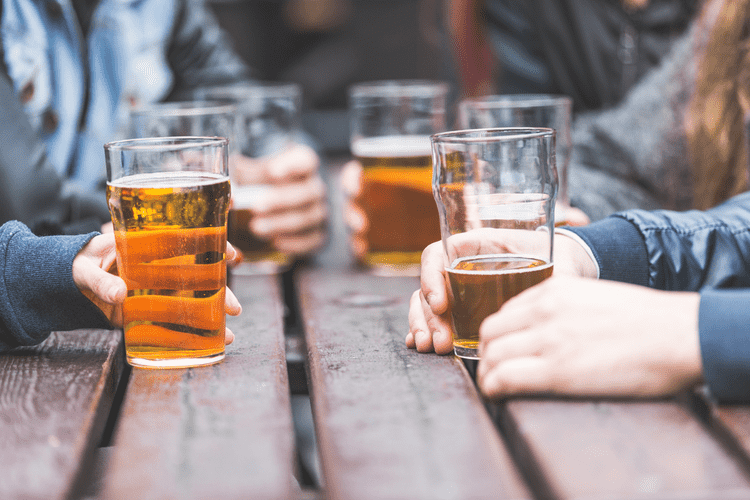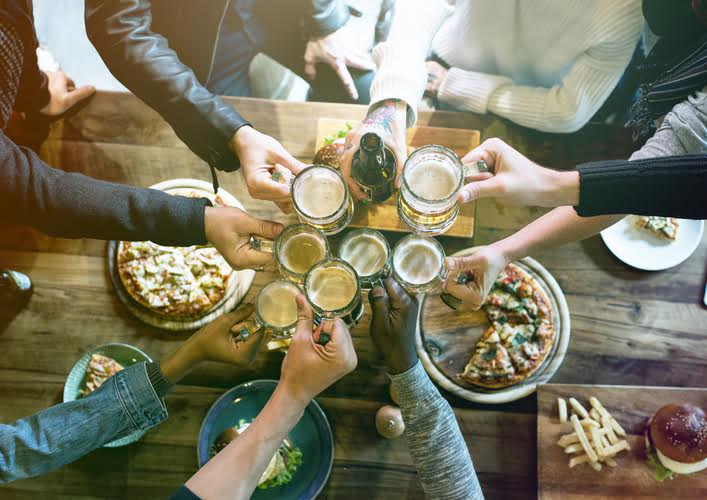How Do I Stop Drinking Alcohol? 7 Tips To Cut Back or Quit
It would be so easy to just order the drink and slip back into your old way of doing things. One of the hardest parts of sobriety is learning how to separate these things. It’s why so many people in the beginning of sobriety stay in the house and avoid going out. For most people, drinking, social situations, and relationships are enmeshed. After you’ve worked out your triggers, it’s time to make a plan to deal with them.
Table of contents
Or maybe you deal with stressful days at work by coming home and cracking open a cold one. For more on breaking associations, I recommend this post on how the brain forms (and breaks) associations with alcohol. Let them partner with you as you create your sobriety plan.

What is Alcohol Use Disorder?
Quitting early heroin addiction not only improves your chances of success—it can also reduce the need for higher levels of care. It’s important to be aware of your triggers and plan how you will handle them. This could mean you may have to avoid places where you know you’ll be tempted to drink, at least for the early stages of your sobriety. It may also mean you decide on what you will do when triggers arise. If you use alcohol as a coping mechanism, the idea of not having it available may be scary. However, the temptation that keeping alcohol in the house creates is often a catalyst for relapse.
How Does Drinking Affect Your Brain and Body?
This is where it becomes essential to think of the progress you made. When mental health challenges and addiction intersect, it can feel isolating. At Arista, we offer compassionate, evidence-based, and trauma-informed care to help you heal, grow, and move forward. Additionally, it is crucial to identify and manage personal triggers. These triggers might include specific social settings or emotional states that prompt cravings.
By recognizing these factors ahead of time, you can prepare strategies that make it easier to navigate challenging situations. Develop alternative plans for social interactions, such as organizing outings that don’t revolve around alcohol, like going for coffee or attending a fitness class. This will help foster positive relationships and reinforce your commitment to reducing or quitting alcohol. Contact a treatment provider today to explore your rehab options and take back your life from alcohol addiction. A modern, online approach allows you to receive guidance and support whenever you need it, and on your own schedule.
Forbes Health adheres to strict editorial integrity standards. To the best of our knowledge, all content is accurate as of the date posted, though offers contained herein https://home.asistco.com/understanding-the-different-types-of-addiction/ may no longer be available. The opinions expressed are the author’s alone and have not been provided, approved or otherwise endorsed by our advertisers.
Creating a plan is an essential part of knowing how to quit drinking. The National Institute on Alcohol Abuse and Alcoholism suggests that having a plan can help solidify your goals and give you a roadmap for how to achieve them. Recognizing you have a problem with drinking is the first step in your journey to a healthier, sober lifestyle. Though it may be intimidating, it’s important to tell your family and friends about your choice to go sober. This allows them to support you in many situations, whether that means meeting up at alcohol-free locations or not offering you a drink when you come over. Similarly, this allows you to not worry about keeping alcohol around for guests, as they know your home is an alcohol-free space.
- That little voice in your head that badgers and coaxes you.
- Perceived social support can play an important part in alcohol use recovery.
- It’s about improving the conditions of your life and developing healthy habits to fortify yourself against future relapse.
- If you’ve decided to stop drinking alcohol on your own, here are a few tips that may help make the process easier.
- These methods can be beneficial for those who are sober curious and are looking to reduce their alcohol intake but may not be ready for complete sobriety.
- Remember breaking the nightly wine habit requires some effort on your part.
Ways to Manage the Urge to Drink During the Holidays

My work focuses on self-development, realizing your potential, and sobriety—speaking from personal experience, having overcome both poverty and addiction. Implementing these new habits takes time, but reducing or eliminating your alcohol consumption is worth it. You need to find new hobbies to take the place of things you used to do while drinking. You need to find new activities and people to socialize with if all of your previous social activities revolve around boredom. NIAAA’s website is full of practical research and science-based methods to help you stop drinking.
Reducing alcohol use can improve mental clarity, emotional balance, and overall well-being. In the body, alcohol weakens the immune system, damages the liver, and raises the risk of heart disease and high blood pressure. Reducing or quitting alcohol helps improve brain function, energy levels, and overall health. Maggie Seaver is the digital health and wellness editor at Real Simple, with seven years of experience writing lifestyle and wellness content. She tips to stop drinking spends her days writing and editing stories about sleep, mental health, fitness, preventive health, nutrition, personal development, relationships, healthy habits, and beyond. She loves demystifying complicated health topics, debunking wellness fads, and sharing practical, science-backed solutions for healthy living.
But at the end of the day — less booze means better health. Whether your goal is to cut back a little or quit altogether, here are some tips to help you get started. There are many different options and resources that can help you learn how to quit drinking.
Removing triggers helps support the goal of stopping drinking. Once urges and cravings are well-managed, a person may consider reconnecting with certain individuals. The severity of your withdrawal symptoms and how quickly they progress determine whether you have mild, moderate, or severe withdrawal syndrome.
That means looking at your relationship with alcohol so you can understand why you drink, when you drink and how much you drink. If one of your New Year's resolutions is to cut back on alcohol, here's a guide that will help make the process easier. If you're looking more health tips, check out this self-care routine for better sleep and the best foods for healthy kidneys.


